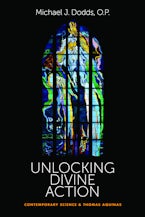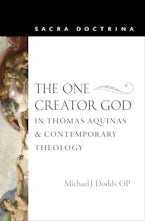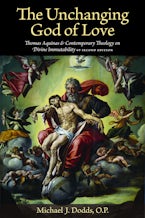Preparing your PDF for download...
There was a problem with your download, please contact the server administrator.
Unlocking Divine Action
Contemporary Science and Thomas Aquinas
Imprint: Catholic University of America Press
Our ability to talk about God's action in the world is closely tied to our understanding of causality. With the advent of modern Newtonian science the conception of causality narrowed, and the discussion of divine action became locked into that contracted understanding. There seemed to be simply no room for God to act in the world without interfering with nature and the laws of science that describe it.
Fortunately, the idea of causality has been greatly expanded through developments in contemporary science. Discoveries in quantum mechanics, cosmology, chaos theory, and biology have all led to a broader understanding of causality. These developments have opened two fundamentally new ways for theologians to "unlock" the discussion of divine action. One is to use the developments of science themselves to speak of God's action. The other is to speak of divine action not directly through the theories and interpretations of science, but rather through the broader understanding of causality that they suggest.
This book explores both approaches and argues that the latter provides a more effective way for discussing divine action. After showing that the idea of causality in contemporary science is remarkably reminiscent of key concepts in the philosophy of Thomas Aquinas, it then retrieves those notions and applies them to the discussion of divine action. In this way, it provides a sustained account of how the thought of Aquinas may be used in conjunction with contemporary science to deepen our understanding of divine action and address such issues as creation, providence, prayer, and miracles.
ABOUT THE AUTHOR:
Michael J. Dodds, O.P., is professor of philosophy and theology at the Dominican School of Philosophy and Theology in Berkeley, California. He is author of The Unchanging God of Love: Thomas Aquinas and Contemporary Theology on Divine Immutability (CUA Press), and coauthor of The Seeker's Guide to Seven Life-Changing Virtues and Happily Ever After Begins Here and Now: Living the Beatitudes Today.
PRAISE FOR THE BOOK:
"This book treats a hot topic in the area of science and religion. Dodds makes an important contribution by laying out the neglected Thomistic view that envisages God's causality as transcending the causality of natural causes. For those interested in discussions concerning divine action, this book is a must."—Marie I. George, professor of philosophy, St. John's University
"This work uncovers an unexpected relationship between classical philosophy and contemporary science. This is an important study for all readers interested in the relation between theology and science. Summing up: Recommended. Lower-level undergraduates and above." - Choice
"Dodds gives a thoroughly even-handed presentation of prevailing views on divine action, in many instances allowing the holders of those views to speak directly through lengthy quotations in the main text or footnotes. One of the strengths of Dodd's treatment of his interlocutors is his unwillingness to pigeonhole any of them; the perceived virtues of any given thinker are displayed just as readily as their vices." —Reviews in Science and Religion
MICHAEL J. DODDS, O.P., is professor of philosophy and theology at the Dominican School of Philosophy and Theology in Berkeley, California. He is author of The Unchanging God of Love: Thomas Aquinas and Contemporary Theology on Divine Immutability (CUA Press), and coauthor of The Seeker's Guide to Seven Life-Changing Virtues and Happily Ever After Begins Here and Now: Living the Beatitudes Today.
"… the book represents an important and sophisticated analysis of science-religion debates and makes an imporant constructive theological contribution."
~Aaron W. Klink, Duke University, Religious Studies Review
"Dodd's project is praiseworthy not only for its deepening of the dialogue between faith and science, but also for suggesting that 'we may need to move beyond empirical science as such and engage a philosophy of nature that can field broader questions about the natural world'."
~Christopher A. Decaen, Thomas Aquinas College, Thomist
"Fr. Dodds has given us an outstanding book. His criticisms of the leading lights of the science and religion field are radical, but not rancorous. Addressing divine action, his work has not so much entered the fray, as called off the combat. His proposal, erudite in both metaphysics and contemporary science, should foster a new kind of conversation."
~Philip Rolnick, Univ St Thomas, American Catholic Philosophical Quarterly
""This book treats a hot topic in the area of science and religion. Dodds makes an important contribution by laying out the neglected Thomistic view that envisages God’s causality as transcending the causality of natural causes. For those interested in discussions concerning divine action, this book is a must."—Marie I. George, professor of philosophy, St. John’s University"




